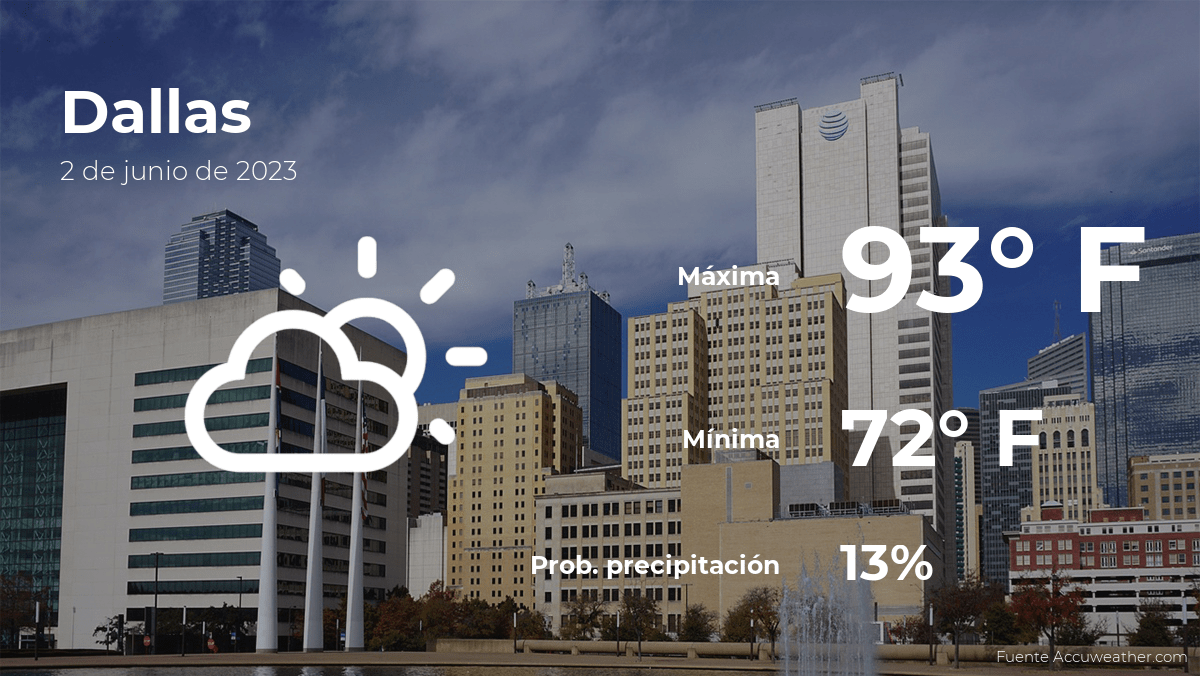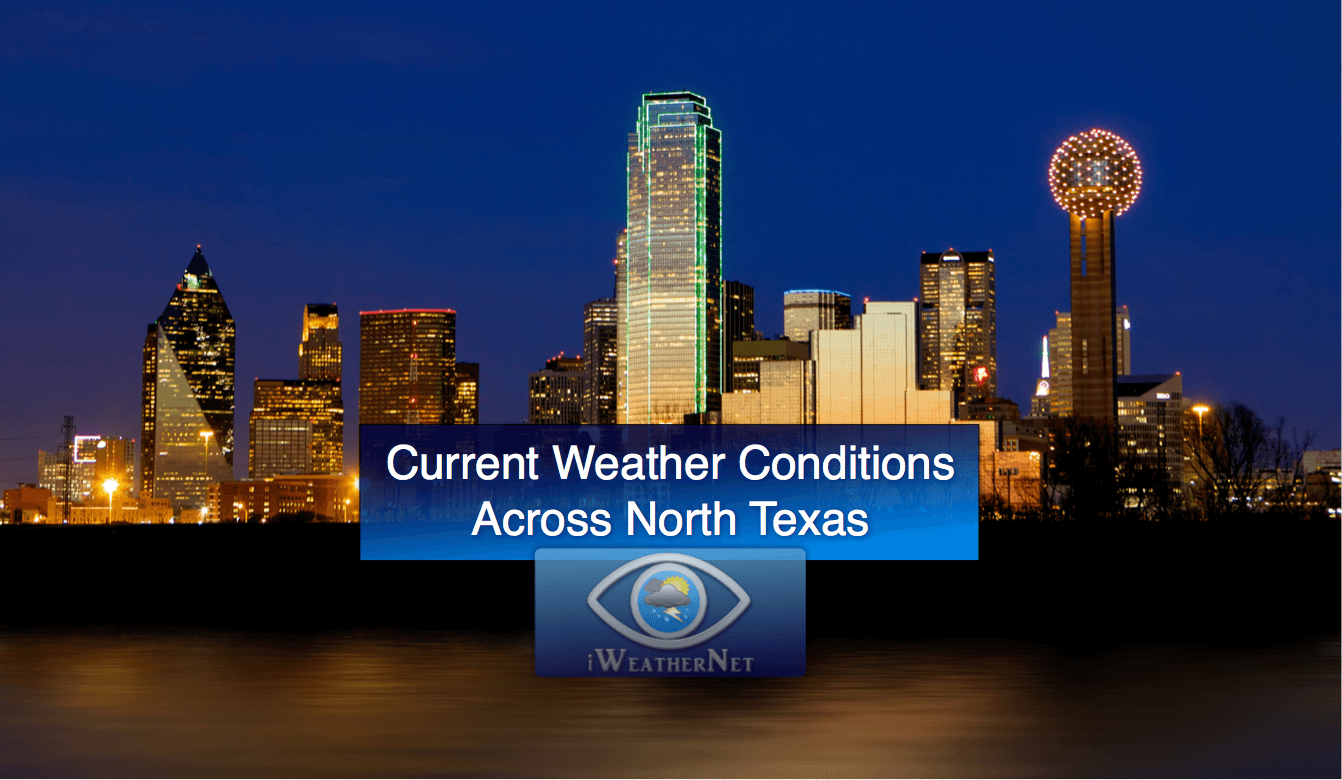Weather dallas – Dallas weather is a fascinating topic that offers a captivating blend of current conditions, historical data, and future forecasts. This article delves into the intricacies of Dallas’s weather patterns, exploring their impact on daily life and the potential implications of climate change.
From the bustling streets to the serene parks, Dallas’s weather plays a pivotal role in shaping the city’s rhythm and character. Whether it’s the warm embrace of summer or the crisp chill of winter, the weather in Dallas is a constant companion that influences our daily routines and outdoor adventures.
Current Weather Conditions
Dallas is currently experiencing mild weather conditions. The temperature is hovering around 70 degrees Fahrenheit (21 degrees Celsius), with a humidity level of 60%. The wind is blowing from the south at 10 miles per hour (16 kilometers per hour).
There is no precipitation at this time.
Historical Weather Data
Dallas has a humid subtropical climate, with hot summers and mild winters. The average temperature in July, the warmest month, is 95 degrees Fahrenheit (35 degrees Celsius). The average temperature in January, the coldest month, is 45 degrees Fahrenheit (7 degrees Celsius).
Dallas receives an average of 37 inches (94 centimeters) of rain per year, with most of the rain falling in the spring and fall.
Extreme Weather Events
Dallas is occasionally affected by extreme weather events, such as tornadoes, hurricanes, and floods. The city is located in Tornado Alley, and tornadoes can occur at any time of year. Dallas has also been hit by several hurricanes in recent years, including Hurricane Harvey in 2017 and Hurricane Laura in 2020.
The city is also prone to flooding, especially during the spring and fall when heavy rains can cause rivers and creeks to overflow.
Meanwhile, in the financial world, Mortgage rates Todaycontinue to fluctuate. Homebuyers navigate a dynamic market, seeking the best opportunities to secure affordable financing for their dream homes. Economic indicators and geopolitical events play a significant role in shaping these rates, impacting the real estate industry and the lives of countless individuals.
Weather Forecasts
The National Weather Service has issued a short-term forecast for Dallas that predicts mostly sunny skies for the next few days. The temperature is expected to remain in the low 70s (mid-20s Celsius), with a slight chance of rain on Saturday.
The long-term forecast for Dallas predicts that the city will experience a warm and humid summer, with temperatures in the 90s (mid-30s Celsius). There is a chance of drought conditions in the summer, as well as an increased risk of wildfires.
Accuracy and Reliability of Forecasts
Weather forecasts are not always accurate, especially for long-term forecasts. However, the National Weather Service uses a variety of tools and data to make its forecasts as accurate as possible. The accuracy of forecasts has improved in recent years, thanks to advances in technology and computer modeling.
Impact of Weather on Daily Life
The weather in Dallas can have a significant impact on daily life. Hot and humid weather can make it difficult to be outdoors, and can also lead to heat-related illnesses. Cold and icy weather can make it dangerous to drive and can also cause power outages.
Severe weather events, such as tornadoes and hurricanes, can cause widespread damage and disruption.
Transportation

The weather in Dallas can have a significant impact on transportation. Hot weather can cause traffic delays, as drivers are more likely to slow down and avoid driving during the hottest hours of the day. Cold weather can also cause traffic delays, as ice and snow can make it difficult to drive.
Severe weather events, such as tornadoes and hurricanes, can cause widespread damage to roads and bridges, making it difficult to travel.
Outdoor Activities
The weather in Dallas can also have a significant impact on outdoor activities. Hot weather can make it difficult to be outdoors, and can also lead to heat-related illnesses. Cold weather can also make it difficult to be outdoors, as ice and snow can make it difficult to walk and play.
Severe weather events, such as tornadoes and hurricanes, can make it dangerous to be outdoors.
In the realm of aviation, Mamie Laverockstands as a pioneering spirit. Her unwavering determination and groundbreaking achievements paved the way for countless women in the industry. Despite facing societal barriers, Laverock refused to be grounded, inspiring generations to reach for the skies.
Weather-Related Hazards
Dallas is located in an area that is prone to a variety of weather-related hazards, including tornadoes, hurricanes, and floods. Tornadoes are the most common severe weather hazard in Dallas, and can occur at any time of year. Hurricanes are less common, but can cause widespread damage when they do occur.
Floods are also a hazard in Dallas, especially during the spring and fall when heavy rains can cause rivers and creeks to overflow.
Risks Associated with Hazards, Weather dallas

Tornadoes can cause widespread damage and loss of life. They can destroy homes and businesses, and can also uproot trees and power lines. Hurricanes can also cause widespread damage, and can also lead to flooding and power outages. Floods can damage homes and businesses, and can also make it difficult to travel.
Preparing for Hazards
There are a number of things that Dallas residents can do to prepare for weather-related hazards. These include:
- Having a plan for what to do in case of a tornado, hurricane, or flood.
- Assembling an emergency kit that includes food, water, first-aid supplies, and other essential items.
- Staying informed about weather forecasts and warnings.
- Following the instructions of local officials in the event of a weather-related hazard.
Climate Change and Weather Patterns
Climate change is expected to have a significant impact on weather patterns in Dallas. The city is expected to experience more extreme weather events, such as heat waves, droughts, and floods. The city is also expected to experience more intense rainfall events, which can lead to flooding.
Climate change is also expected to make it more difficult to predict weather patterns.
Potential Impacts of Climate Change
The potential impacts of climate change on weather patterns in Dallas include:
- More extreme heat waves, which can lead to heat-related illnesses and deaths.
- More droughts, which can damage crops and lead to water shortages.
- More floods, which can damage homes and businesses and make it difficult to travel.
- More intense rainfall events, which can lead to flooding and landslides.
- More unpredictable weather patterns, which can make it difficult to plan for the future.
Outcome Summary: Weather Dallas
As we look ahead, the potential impacts of climate change on Dallas’s weather patterns loom large. Understanding these changes and their implications is crucial for safeguarding our city’s future. By embracing sustainable practices and investing in climate resilience, we can mitigate the risks and ensure that Dallas remains a vibrant and thriving metropolis for generations to come.